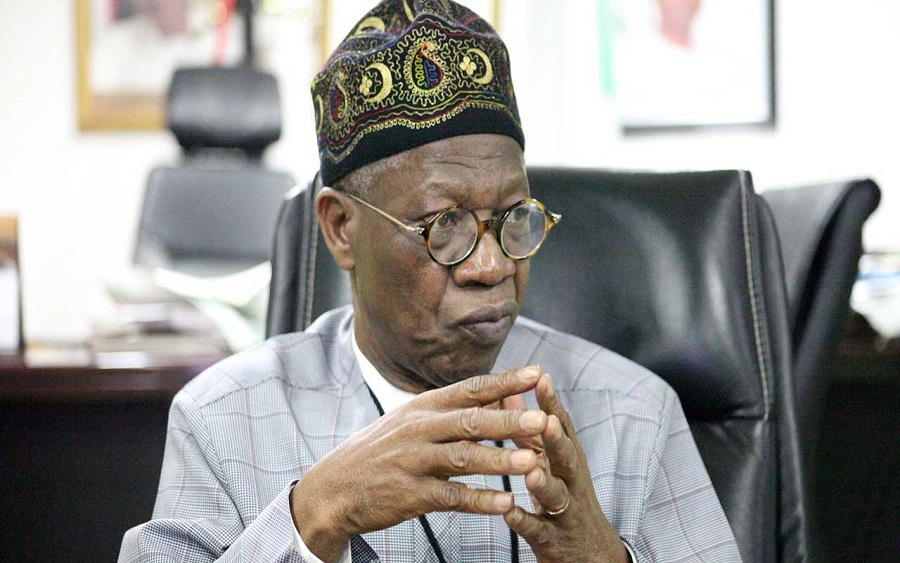The Federal Government of Nigeria has disclosed that the country’s non-oil exports increased from N1 trillion to N2 trillion in one year.
Lai Mohammed, the Minister of Information and Culture disclosed this in a media briefing on the major achievements of the country’s current government for the outgoing year. He added that the value of crude oil exports decreased by 3.78%, as non-crude oil exports rose by over 30% in value between 2018 and 2019.

The government disclosed that the total value of exports grew by 2.5% to hit N14.4 trillion as at third quarter 2019 while total value of imports in 2019, as at the third quarter stood at N11.6 trillion, compared to N9.6 trillion as at third quarter of 2018.
“Strong performance in the external sector suggests increasing diversification of exports and export revenue. This resulted in a stronger overall performance and an increase in the value of total trade by 10% between 2018 and 2019.
“This represented an annual growth rate of 21% between 2018 and 2019. Other than refined petroleum products, major imports have been machinery and vehicles,’’ he said.
[READ MORE: FG makes U-turn, to sell stake in oil assets)
However, in regard to the performance of the 2019 budget, the minister stated that while the government experienced revenue shortfalls in the first half of the year, capital expenditure was prioritised, in order to boost expenditure performance. He added that actual aggregate revenue as at half-year 2019 stood at N2 trillion which is 58% of pro-rated target.
“This comprised oil revenue of N900 billion (49 per cent performance), Company Income Tax (CIT) of N349 billion (86 per cent performance), Value-Added Tax (VAT) of N81 billion (71% performance), and Customs Collections of N184 billion (100.47% performance),’’ he said.
However, in regard to government expenditure, it was stated that as at half-year 2019, out of the total appropriation of N8.9 trillion for 2019, about N3.4 trillion had been spent, representing 76% performance for that period. Lai Muhammed stressed that capital spending had been prioritised in favour of ongoing infrastructural projects in the power, roads, rail and agriculture sectors.
Mohammed said while the inflow of Foreign Direct Investment declined over the period by 39% from one billion U.S. dollars to 700 million U.S. dollars, portfolio investment and other investments both rose significantly by 39% and 42% respectively.












